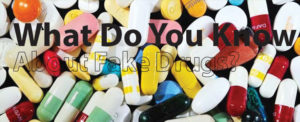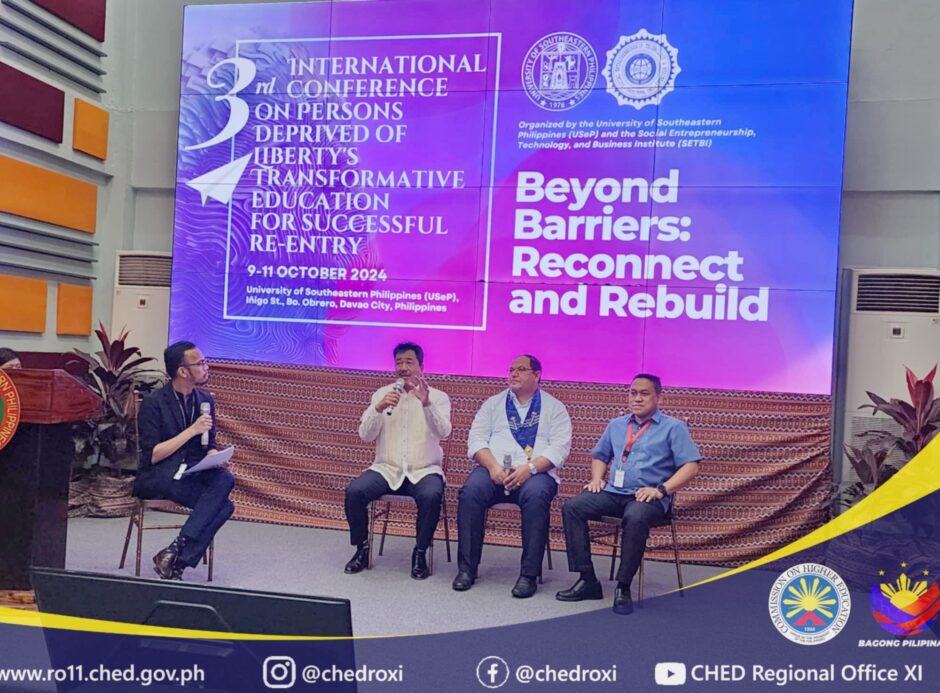 We hope that President Rodrigo Duterte will continue his war on counterfeit drugs. His policies may tackle the cultivation, distribution, and consequences of illicit drugs. For example, those fighting against counterfeit medicines complain that those prosecuted for this offense receive a comparatively light sentence compared to the sentences given to criminals peddling narcotics. Yet, counterfeit drugs are very dangerous because they threaten national security by endangering the health of a vast majority of the people. Fraudulent operations, nevertheless, continue to operate and flourish in countries with weak drug regulatory bodies because of the dual accountability problem of poor funding and staffing and weak or corrupt customer services and policy agencies. According to the World Health Organization (WHO), the counterfeit drugs business accounts for about 10% of the annual $300 billion global drug industry. This figure includes such pharmaceuticals as fake birth control pills, cough syrup for children laced with a powerful opioid, and malarial pills composed of just potato and cornstarch. The WHO lists these as examples of poor quality, falsified medicines identified in recent years, all of which ignore the possible consequences for the public— health risks for and potential death of the users. Furthermore, some drugs that are not classified as illegal or dangerous may become so if purchased from an online site that proves not to be legitimate or even a trusted pharmacy that unknowingly receives a shipment of untested and illegitimate drugs. Because this counterfeit trade is so lucrative, the growing supply has caused great damage around the world.
We hope that President Rodrigo Duterte will continue his war on counterfeit drugs. His policies may tackle the cultivation, distribution, and consequences of illicit drugs. For example, those fighting against counterfeit medicines complain that those prosecuted for this offense receive a comparatively light sentence compared to the sentences given to criminals peddling narcotics. Yet, counterfeit drugs are very dangerous because they threaten national security by endangering the health of a vast majority of the people. Fraudulent operations, nevertheless, continue to operate and flourish in countries with weak drug regulatory bodies because of the dual accountability problem of poor funding and staffing and weak or corrupt customer services and policy agencies. According to the World Health Organization (WHO), the counterfeit drugs business accounts for about 10% of the annual $300 billion global drug industry. This figure includes such pharmaceuticals as fake birth control pills, cough syrup for children laced with a powerful opioid, and malarial pills composed of just potato and cornstarch. The WHO lists these as examples of poor quality, falsified medicines identified in recent years, all of which ignore the possible consequences for the public— health risks for and potential death of the users. Furthermore, some drugs that are not classified as illegal or dangerous may become so if purchased from an online site that proves not to be legitimate or even a trusted pharmacy that unknowingly receives a shipment of untested and illegitimate drugs. Because this counterfeit trade is so lucrative, the growing supply has caused great damage around the world.
Pain cannot be avoided because it is part of our human experience. Whether we experience it as the result of an injury from a car accident, infection, surgery, or other health issues, pain can interfere with our ability to sleep, work, and enjoy our life fully; yet, there are ways to treat pain. Unfortunately, rogue operations take advantage of this need to alleviate pain. In addition, a psychological pain can result from seeing a loved one suffering, for example, from malaria, one of the biggest killers of children across the globe. Filling a prescription for a loved one may bring temporary comfort because with the medicine to combat the disease purchased from a local drug market or from online, the care giver thinks relief is at hand. Yet, many experience the horror of seeing their loved one die because the drug was fake. That is the brutal reality of the annual multi-billion dollar global fake drug trade.
Opioid drugs are one of the ways people use medicine to avoid pain. Now experiencing an opioid crisis, America is the number one country in use of prescription drugs and painkillers. Part of the problem is that a person can develop a tolerance to those drugs. Over time, higher and higher doses may be needed to achieve the same degree of pain relief. As a corollary, the problem of widespread use of poor quality and increased dosages of medicines will increase antibiotic resistance. Addiction to opioid painkillers is also the biggest risk factor for heroin addiction, according to the US National Institute on Drug Abuse. For some time now, the abuse of illicit substances, such as marijuana or other cannabis production, methamphetamine (shabu), cocaine, and heroin has been a persistent international problem. These potentially dangerous and sometimes fatal pharmaceuticals have been found in over 100 countries. Awareness of drug traffickers and offenders has captured the limelight. But in more recent years, few people realize that prescription drugs have become a leading cause of death, disease, and disability. Prescription drug abuse is a bigger problem worldwide than previously thought.
Prescription painkillers as well as herbalism, used for thousands years to overcome a myriad of maladies including tiredness, are victimizing Asian communities, and yet are totally legal. Currently sharing media attention with illicit street drugs, some controlled substances, such as those prescribed to relive pain and anxiety, are proving dangerous. While the demand for amphetamines, opiates, and cocaine continues to surge in the region, it is the abuse of everyday over the counter medications that has triggered alarm in health systems, according to the World Drug Report from the United Nations Office on Drugs and Crime.
For example, Tramadol, an opioid used to treat moderate pain in adults, and sold under brand names like Ultram, ConZip, Rybix ODT and Ultram ER, has caused a wave of addictions in Asia and Africa. Similar to morphine, it can create a dependency after only two or three weeks of consumption and may have lethal effects when combined with alcohol or other drugs. Low cost supplies of the drug are being shipped from Asia, where the drug is often manufactured, to the Middle East and to Africa. It is very difficult to counter it because no international control exists. International collaborations are needed to monitor prescription drug abuse, identify its scope, and develop targeted interventions.
To complicate the problem of overmedication, increasingly, prescription drugs, such as Xanax, Percocet, Vicodin, Lortab, OxyContin, have recreational uses or even superfluous ones. Access to prescription drugs in America is easy. A clean cut college student complains to the doctor about test anxiety and asks for something to relieve stress. He leaves the office with a prescription. Also, students share these pills in their dorm house or at a party. While initially seemingly limited to the US, the prescription drug epidemic extends well beyond there. Whatever the country, we are living in the age of prescription drugs being used for party purposes, for light concerns, or out of habit. The legal ambiguity of drugs also frustrates efforts to contain these drugs.
Curtailment of some drugs proves elusive, as in the case of kratom, a natural stimulant from the mitragyna specious plant in Southeast Asia that boosts alertness and energy levels when its leaves are chewed, when it is used in tea or smoked, or when it is ingested as a capsule. Kratom is available as a capsule through legitimate pharmacies in the Philippines, Vietnam, and Papua Guinea. Usually sold as leaves, the most illicit production comes out of Indonesia. To the point, the US Food and Drug Administration Commissioner, Scott Gottlieb, warned that kratom, which is still being legally marketed as a diet or nutrition supplement, has a potential for abuse, addiction, and serious health consequences, including death.
Prescription drug abuse can affect all age groups, but it is more common in young people. According to the Mayo Clinic, the prescription drugs most often abused by this age group include opioid painkillers, sedatives, anti-anxiety medications and stimulants. The initiation into drug abuse, particularly among youth, results in part from the ease of acquiring them from family, friends, or personal prescriptions. The early identification of prescription drug abuse and early intervention may prevent the problem from turning into an addiction. To ward off a crisis, some countries are taking action even though the drug or plant is not listed as illicit by any United Nations Drug Control Convention.
Even in the face of this world crisis of fraudulent manufacture and bogus consumption of drugs, some people have an inherent desire to make money although it compromises others' well-being, causes addictions, or results in death. However, on the preventive side, because it is hard and expensive to make quality drugs, large pharmaceutical companies have taken up the fight against fake drugs. Their sales depend on the public’s trust. If buyers take a drug that does not work, they would not consider that it might be a counterfeit drug, but instead would think Pfizer is making ineffective medicines. With the exception of the fraudsters, everyone is a victim. Large pharmaceutical companies argue against fabricating generic copies of their formulas that they have spent billions of dollars on researching. Yet, sometimes the companies that make low cost generic drugs pirate that research, often in the name of affordability for the poor to have quality drugs at affordable prices.
In conclusion, the black hole of accountability from governments, drug companies, and consumers, should cause us to demand systems to ensure that a medicine is what it is labeled, that it is prescribed only for a real need, and that buying it demands legitimate prescriptions. Legislation should clearly define crimes so that narcotic agencies can pursue real offenders. As part of the war on drugs, the penalty for fraudulent manufacturers should be in keeping with the sentence for other drug offenses.
Dr. Aland Mizell is President of the MCI and a regular contributor to Mindanao Times. You may email the author at:aland_mizell2@hotmail.com

